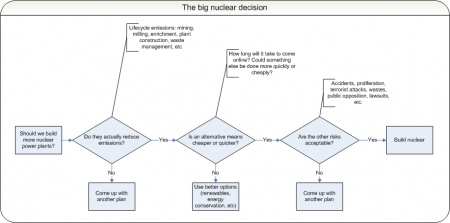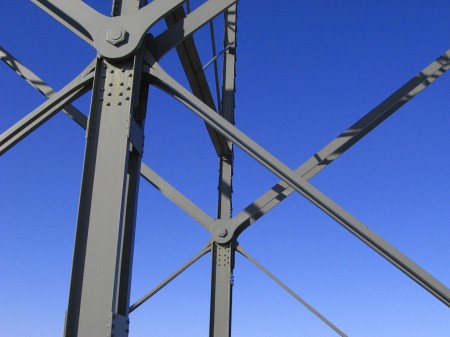
As discussed previously, meat eating is problematic in terms of the environment, animal welfare, and human health. One mechanism through which one of those concerns can be eliminated – and the others potentially mitigated – is to remove animals from the equation. This week saw the world’s first international conference on the industrial manufacture of meat. Arguably, that is what the beef, pork, and chicken industries already do but, in this case, the meat is to be grown in industrial bioreactors instead of inside animals that are subsequently killed.
It should be noted from the outset that there are some problems that this approach absolutely will not solve. It will always take more energy to sustain a meat diet than a plant diet, whether that energy is going into cows or industrial processes. Similarly, large amounts of energy use associated with transportation and refrigeration would be undiminished in the face of in vitro meat production. Given that plants will probably always be a feedstock to the process, concerns about water and fossil fuel use in agriculture, as well as fertilizer and pesticide runoff, remain in place. That said, it is possible that vat grown meat could be marginally more efficient, since calories would not be directed towards growing skeletal or nervous systems. Big vats would also have a higher volume to surface area ratio than animals, making it less energy intensive to keep warm.
The major problem vat-grown meat could solve is animal welfare, though that is probably the reason for avoiding meat that most people find least compelling. Even most vegetarians drink milk and eat eggs, most of which is produced under conditions equally awful for the animals. Arguably, vat grown meat would still be a kind of ethical violation – not because any animals suffer, per se, but because the whole concept is somehow monstrous and demeaning to nature.
All told, this doesn’t seem like much of a solution. The way slaughterhouse animals exist already approximates the character of an industrial meat factory. There is also little reason to believe that firms that happily feed all manner of drugs and hormones to animals would not similarly manipulate huge tanks full of artificial fat and muscle. As such, any hygienic concerns about factory farmed animals would probably translate readily to vat-grown meat.
The relevance of any of this is fairly questionable, given that vats are currently capable of producing the very lowest quality kind of meat (fodder for ground meat and nuggets) and can only do so at a financial cost higher than industrial agriculture. For all intents and purposes, we have already built industrial bioreactors on the skeletons of livestock. Shifting those to steel drums, as an alternative, will only make sense if the economics swing strongly in that direction for some reason.





